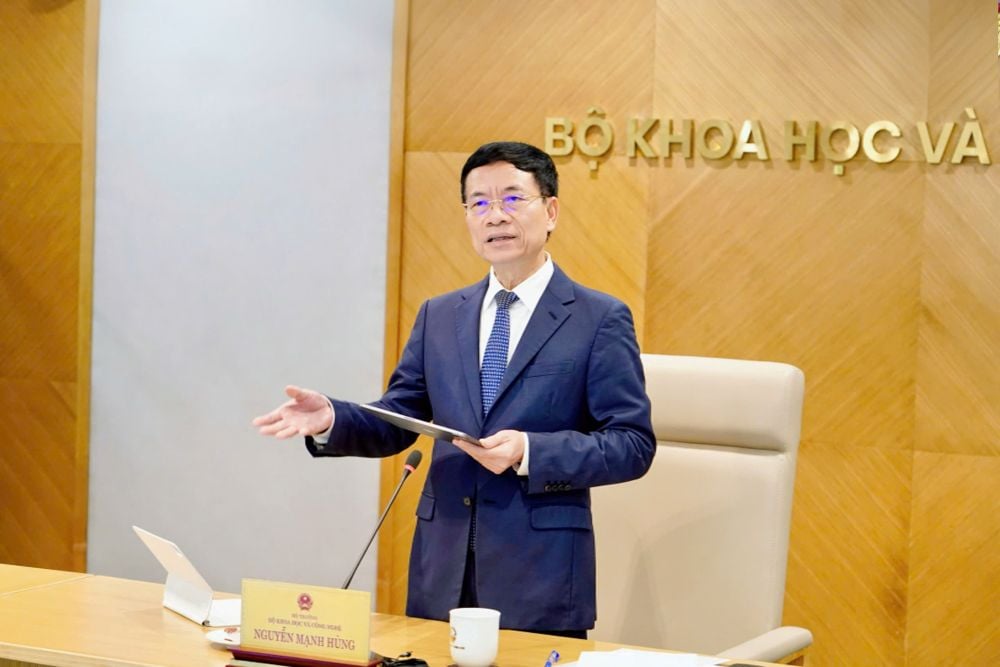
Minister Nguyen Manh Hung gave a speech at the meeting.
Building a modern nuclear regulatory infrastructure
At the meeting, Director of the Department of Nuclear Safety Nguyen Hoang Linh reported on the organization and operation of the unit in the past time, emphasizing the outstanding results in the period 2020-2025 on: Institutional and legal building; licensing; development and application of atomic energy (NEE); international cooperation; technical support, information, training; inspection and examination.
The Department has presided over and submitted to the National Assembly for approval of the Law on Nuclear Energy 2025 at the 9th session of the 15th National Assembly, granted more than 7,000 radiation work licenses, 280 registration certificates for nuclear energy application support services, nearly 4,800 radiation worker certificates and practice certificates (an average increase of about 8%/year), approved 220 grassroots incident response plans; submitted to the Ministry of Science and Technology for issuance of 63 licenses, assessed and approved 6 provincial incident response plans; and many effective international cooperation activities on safety, security, nuclear inspection and technical cooperation with the International Atomic Energy Agency (IAEA), the European Union (EU) and international partners; Focal point to help the Ministry of Science and Technology implement a number of international treaties in the field of nuclear energy; Tripartite cooperation IAEA-Vietnam - Laos/Cambodia to support Laos and Cambodia in developing nuclear energy applications and nuclear safety management capacity.
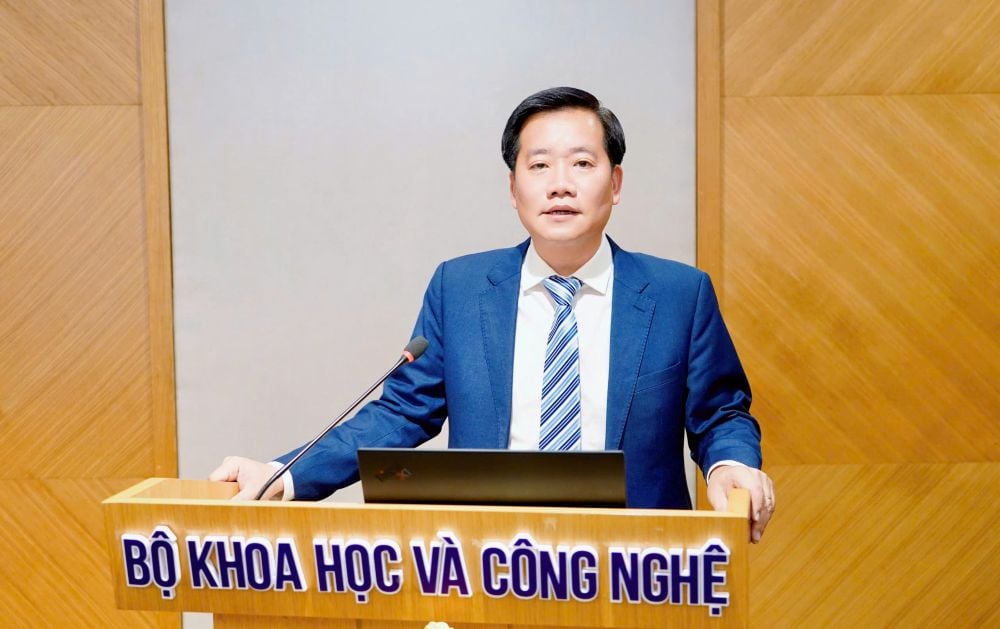
Director of the Department of Traffic Safety Nguyen Hoang Linh reported at the meeting.
The Department coordinates 6 national projects (VIE), 17 regional, inter-regional, and area projects (RAS, INT) on capacity building and promoting research, development, and application of nuclear technology in sectors and fields; Directly implements 3 projects (VIE9020, VIE9021, VIE9022) on developing nuclear regulatory infrastructure in medicine and industry.
The Department is the rotating chair of the ASEAN Nuclear Regulatory Bodies Network (ASEANTOM) in 2020 and the rotating chair of the Asia- Pacific Nuclear Safeguards Network (APSN) in 2021-2022.
Regarding the development and application of nuclear energy, the Department organizes the assessment of the implementation results of the Strategy for the application of nuclear energy for peaceful purposes until 2020; Focal point for developing the Plan for the development and application of nuclear energy for the period up to 2030, with a vision to 2050 (Decision No. 245/QD-TTg) and the Plan for implementing the Plan.
The key development orientations set by the Department of Nuclear Safety and Security in the 2026-2030 period include: Completing the system of legal documents according to the Law on Nuclear Energy 2025; implementing the Resolution on nuclear energy development and enforcement to ensure safety and security; enhancing the comprehensive capacity of the national nuclear radiation safety agency; building, operating, and exploiting the Digital Platform on nuclear and radiation safety and nuclear energy development; developing technology and applying nuclear energy to serve socio-economic development.
At the same time, the Department of Nuclear Safety has made a number of proposals to the Minister on: Directing the Project to Enhance the Capacity of the Department of Nuclear Safety; Allowing the implementation of the 2026-2028 Public Investment Project, starting to invest in building a digital platform for all monitoring and licensing activities; Developing a set of criteria and contract terms for selecting contractors to support consulting on appraisal of nuclear power plants; Ensuring operating costs of the Department of Nuclear Safety; creating conditions to enhance facilities for the Department of Nuclear Safety at the new headquarters.
Building a strong organization as we move into a new phase
At the meeting, Deputy Minister Le Xuan Dinh made some notes on the upcoming work content of the Department of Nuclear Safety. Nuclear regulatory work will enter the practical implementation phase, with many heavy tasks and higher requirements than the previous research and hypothesis phase. To meet this requirement, it is necessary to build a strong, disciplined, disciplined and unified organization, from the Department's leadership to its affiliated units.
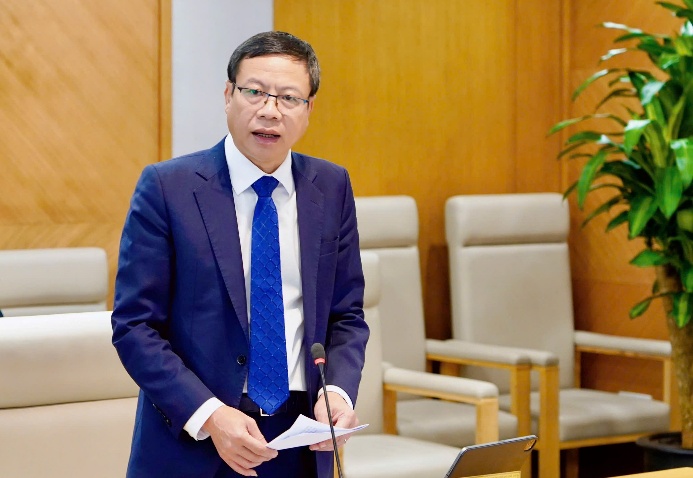
Deputy Minister of Science and Technology Le Xuan Dinh spoke at the meeting.
"A strong organization must be formed from the changes of each cadre, civil servant and public employee. Discipline, solidarity and information security are the basic working principles of any national nuclear regulatory agency. This is a prerequisite to ensure safety and efficiency in state management of nuclear power. Leaders of units need to thoroughly instill this spirit to all cadres," Deputy Minister Le Xuan Dinh noted.
From now until the end of the year, the key task is to complete regulations and circulars in accordance with decentralization and delegation of authority. Accordingly, licenses related to ATBXHN need to be adjusted for approval by the Department of ATBXHN, ensuring a strict, public and transparent process. At the same time, the capacity to draft documents and draft submissions needs to be improved, ensuring clarity and logic in state management activities.
The Department of Nuclear Safety and Nuclear Power is not only a unit that drafts legal documents, but also an advisory body for the Ministry and the Government on issues related to nuclear power development, nuclear energy application and radiation safety assurance. The Deputy Minister suggested that the Department of Nuclear Safety and Nuclear Power and the Vietnam Atomic Energy Institute (VINATOM) should consider consulting and drafting in-depth reports as a regular task, at least quarterly. The nuclear regulatory bulletin should be published monthly, instead of every 6 months as at present, to ensure updates and effective communication.
The Department of Nuclear Safety and Health is required to promote its role as a regulatory agency in accompanying VINATOM in developing a feasibility study (FS) for the Center for Nuclear Science and Technology in Dong Nai - an important premise for the construction of a nuclear power plant in the future. Accordingly, the Department needs to proactively coordinate in developing and promulgating national technical standards and regulations for this field.
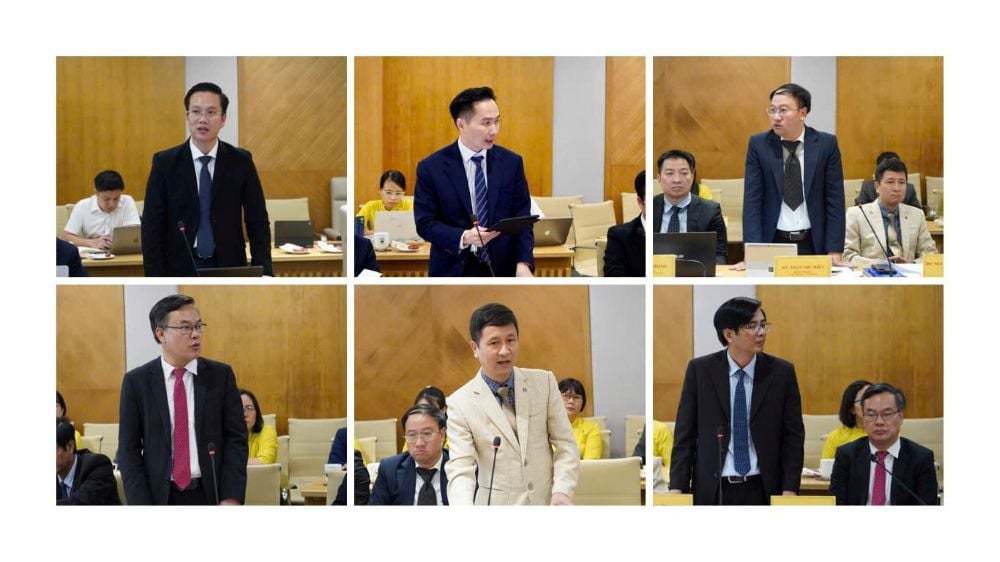
Representatives of the units' leaders exchanged at the meeting.
The Deputy Minister affirmed that the Department’s early construction of a digital platform is an urgent requirement to prepare for the implementation phase when the Nuclear Power Law comes into effect. In addition, international cooperation should be considered an essential resource, especially in human resource training and implementation of technical projects. The Department of Nuclear Safety is responsible for coordinating with VINATOM to train and develop management, technical and operational staff at future nuclear power plants.
Regarding the issues that have been clearly answered by the Minister. The Deputy Minister requested the Department of Safety and Health to quickly take action, without hesitation, complete on schedule, with sufficient content and achieve the highest efficiency according to the tasks assigned by the Ministry. The Ministry's leaders believe that the Department's staff will promote the spirit of solidarity and effective coordination to complete the assigned tasks.
"Commander-in-Chief" of the national strategy on nuclear safety
After listening to the report of the Department of Nuclear Safety and the opinions of the units, Minister Nguyen Manh Hung emphasized: 2025 marks an important turning point when the Department enters a new decade of development - associated with Vietnam's strategic orientation to establish nuclear power as green and base electricity, while promoting the application of renewable energy in all aspects of life. According to the Minister, the new context requires the Department to clearly affirm its overall coordination role, unify forces and hold core technical capacity in nuclear safety.
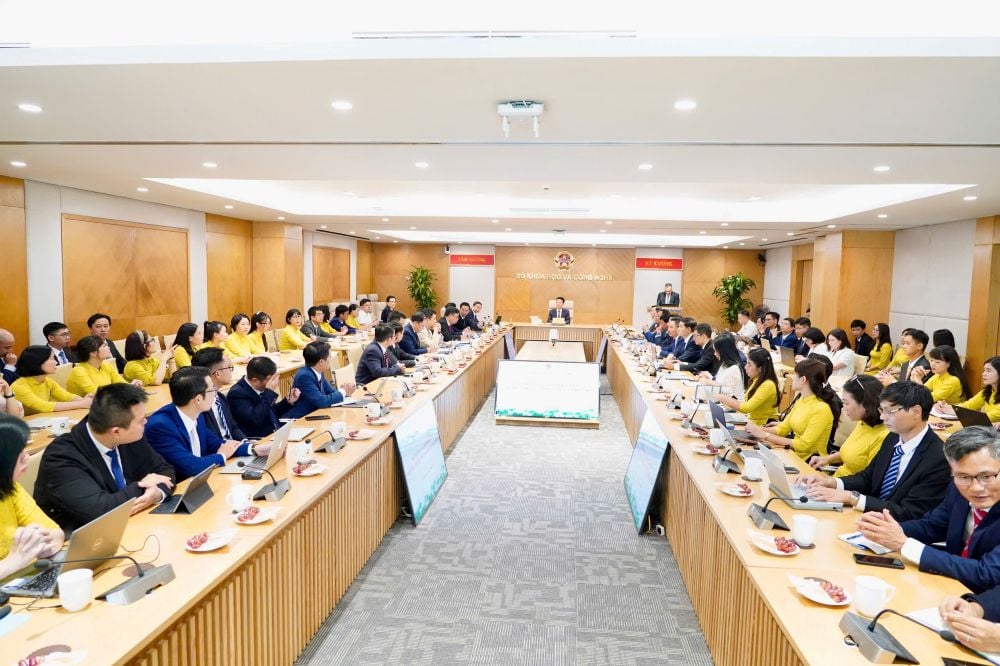
Minister Nguyen Manh Hung works with the Department of Traffic Safety.
Referring to the prominent trends in the field of nuclear safety in the world, the Minister emphasized the urgent requirements: It is necessary to separate the safety management agency and the nuclear development agency; The regulatory agency must have relative institutional and technical independence; Investment in technical capacity, including incident simulation, remote monitoring, safety analysis, specialized training, and emergency response is mandatory; Strengthening transparency and social supervision, through public reports, contributes to creating trust from the community; Nuclear safety is a highly international field, the Department needs to closely coordinate with the IAEA, complying with international conventions.
At the meeting, Minister Nguyen Manh Hung made many important suggestions to reposition the role of the Department of Safety and Health in the new development stage:
First , upgrade regulatory and incident response capacity. The Department needs to transform from an administrative agency to a national strategic coordination agency on nuclear safety, playing the role of "commander-in-chief" with technical capacity, independent authority and international thinking; Establish a Safety Laboratory, a National Incident Response Operations Center, equip simulation systems, field training, multi-level warning systems; Build a national radiation monitoring system and risk assessment tools at multiple levels.
Second, carry out comprehensive digital transformation. The Department needs to modernize the licensing, post-inspection, inspection, online monitoring system, build radiation maps and electronic licenses; apply artificial intelligence to assess risks by region, and integrate data into the national digital infrastructure.
Third, develop human resources and expert networks. The Minister requested the Department to develop a project to train inspectors and safety assessment experts; establish a mechanism for rotating staff between the Department and VINATOM; form a network of domestic and foreign experts, and establish a National Nuclear Safety Expert Council.
Fourth, promote international cooperation. The Department must proactively expand international cooperation, participate deeply in international organizations and conventions, and act as a national focal point for international cooperation in the field of nuclear energy.
Along with that, the Department is assigned to continue building a system of legal documents: decrees, circulars, technical regulations on design, construction and operation of nuclear power plants; Establishing a 5-step licensing process, coordinating with the IAEA in inspection and assessment work; Transparency of information in: Publicizing safety records, inspection results, enhancing communication about projects such as Ninh Thuan nuclear power plant, Dong Nai research reactor.
Regarding the development of applications of nuclear energy for peaceful purposes, the Minister noted the promotion of applications of nuclear energy in the fields of industry, health, environment, agriculture, etc. At the same time, review and create a legal corridor for private investment such as small reactors (SMR), private irradiation centers, and radioisotope services. Develop a national application program and expand inter-sectoral cooperation with ministries and branches.
Building an international standard ecosystem in human resource training
In carrying out its tasks, Minister Nguyen Manh Hung noted that the Department should prepare sufficient human resources and a national network of radiation safety experts. Develop a project on training inspectors and nuclear power experts, and coordinate with VINATOM, universities and international organizations to develop periodic training programs.
The Minister requested that the Department should create a professional, standardized, and internationalized nuclear safety training ecosystem. Develop a multidisciplinary team: engineering, law, risk management, and communications. Connect with a network of international experts and consultants. Develop a national training program and issue international certificates on nuclear safety.
In response to the attention of the Party, State and Ministry of Science and Technology for the nuclear field, the Minister requested that the Department of Nuclear Safety and Security need to renew its thinking, reorganize its forces, shift to a national leadership role, and know how to choose effective methods instead of spreading out.
Concluding the meeting, Minister Nguyen Manh Hung expressed his hope: The country has placed its trust in the science and technology sector and the nuclear industry. The responsibility placed on the shoulders of the Department of Nuclear Safety and VINATOM is enormous. The Department of Nuclear Safety and VINATOM needs to be proactive, determined, overcome difficulties and work to the end.
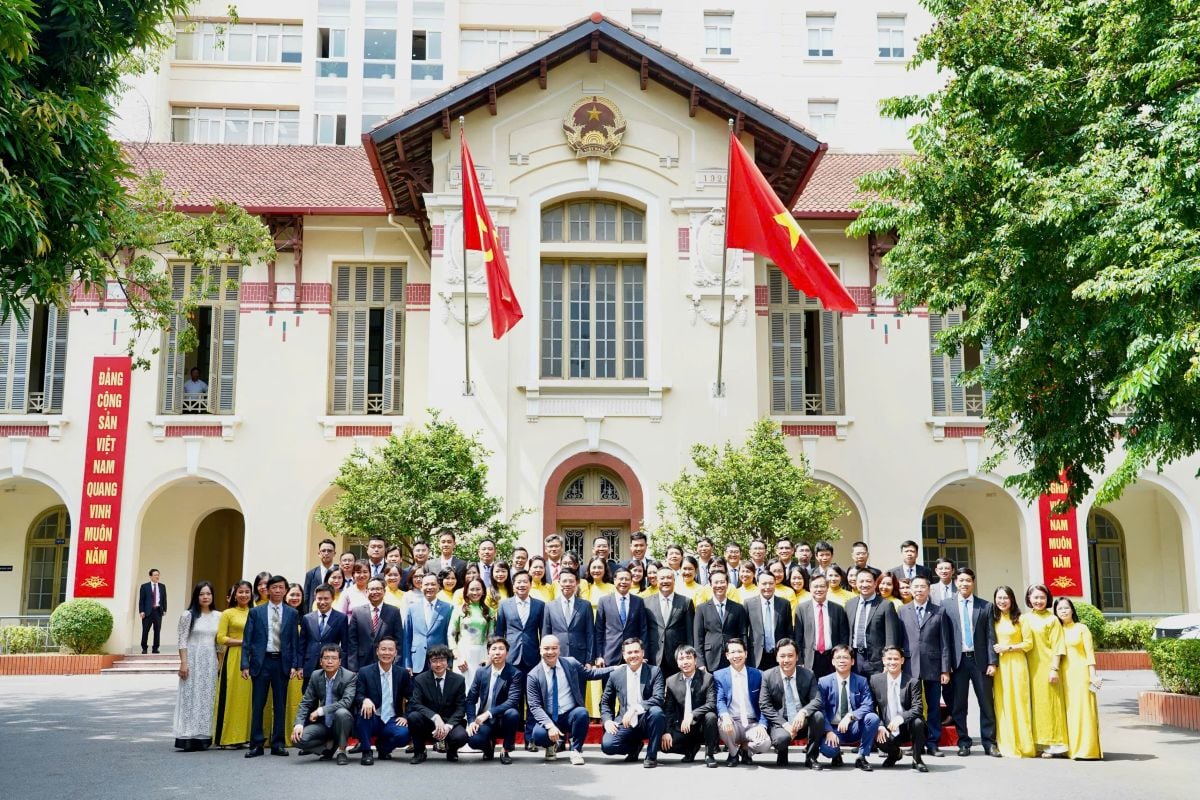
Minister Nguyen Manh Hung and leaders of some units under the Ministry took a photo with the Department of Nuclear Safety.
Source: https://mst.gov.vn/cuc-an-toan-buc-xa-va-hat-nhan-se-la-tong-chi-huy-chien-luoc-quoc-gia-ve-an-toan-hat-nhan-197250801160140763.htm





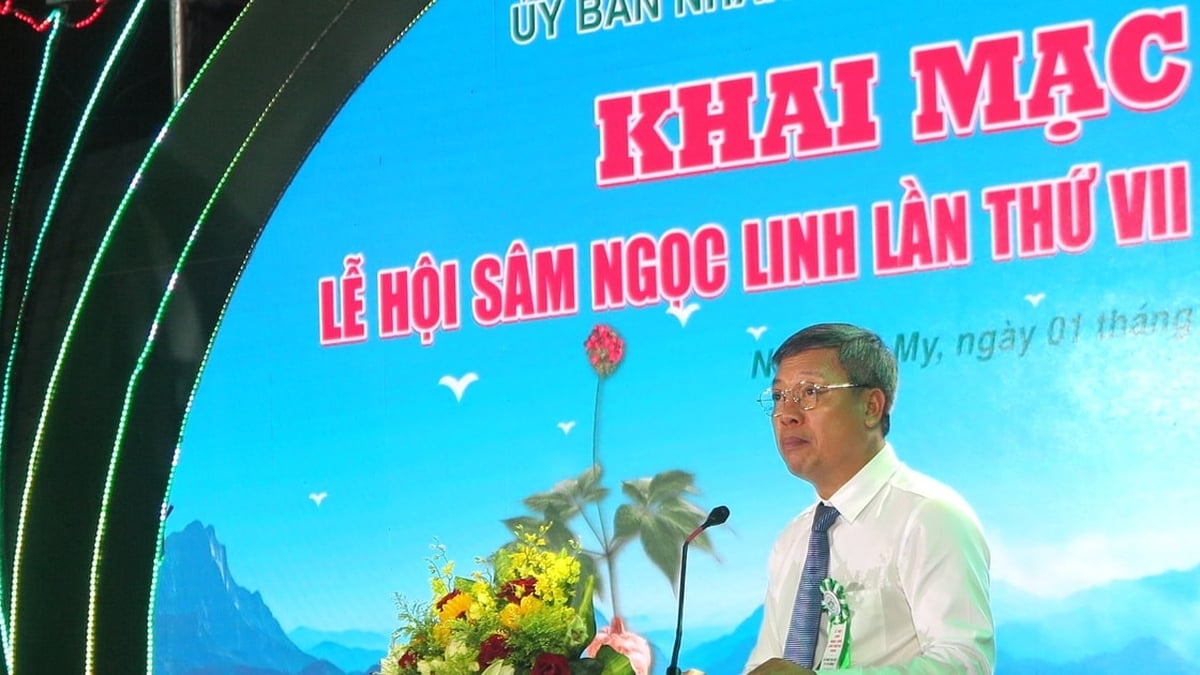

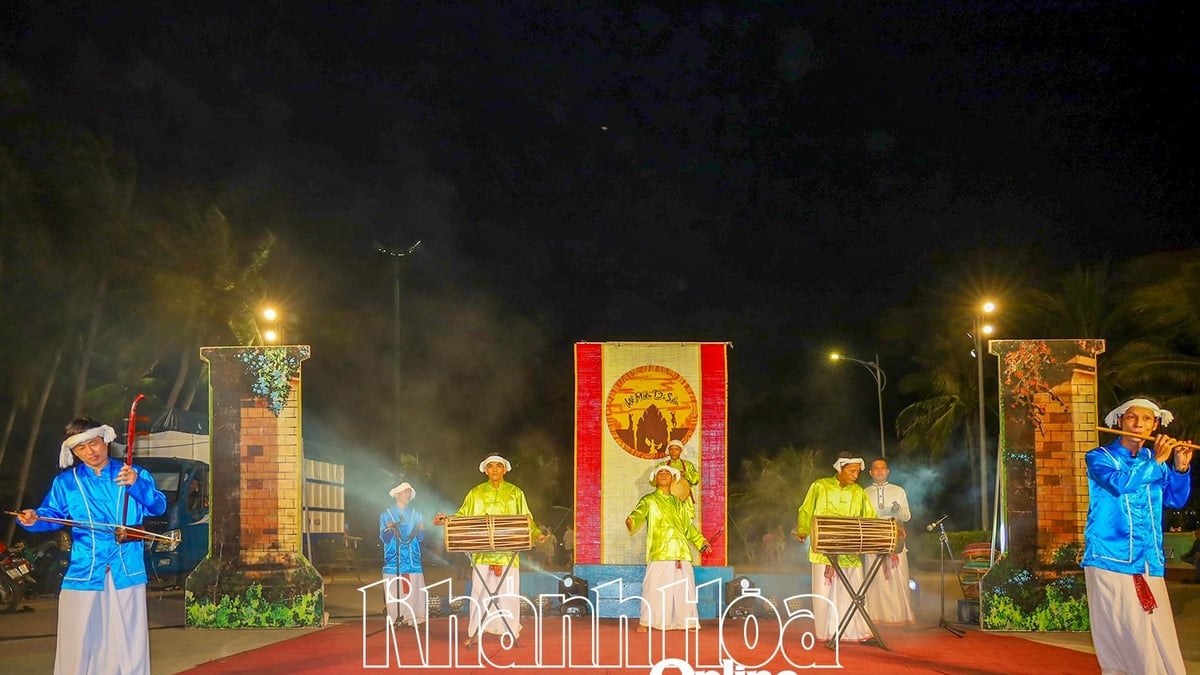
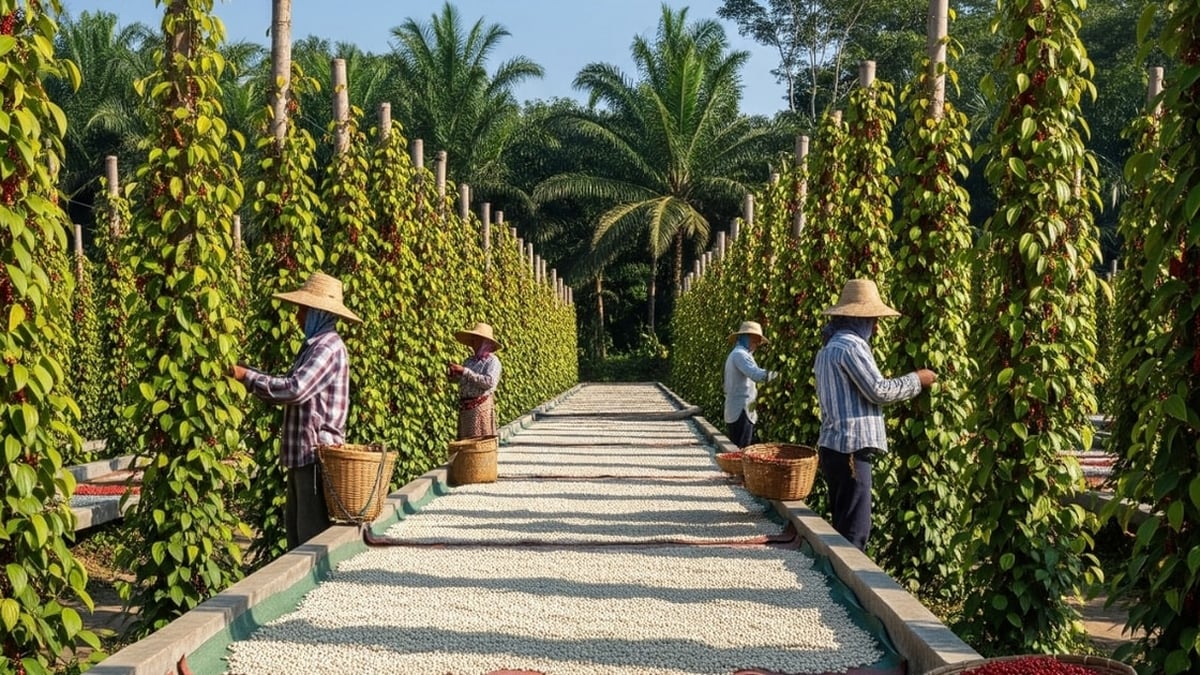
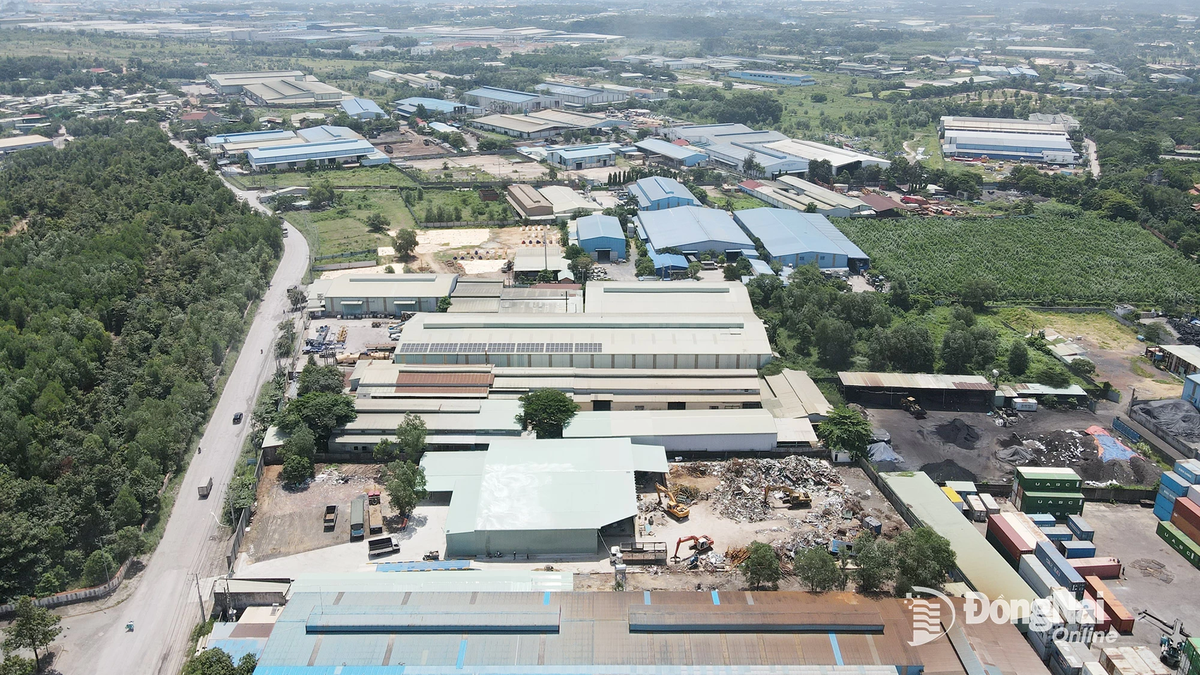
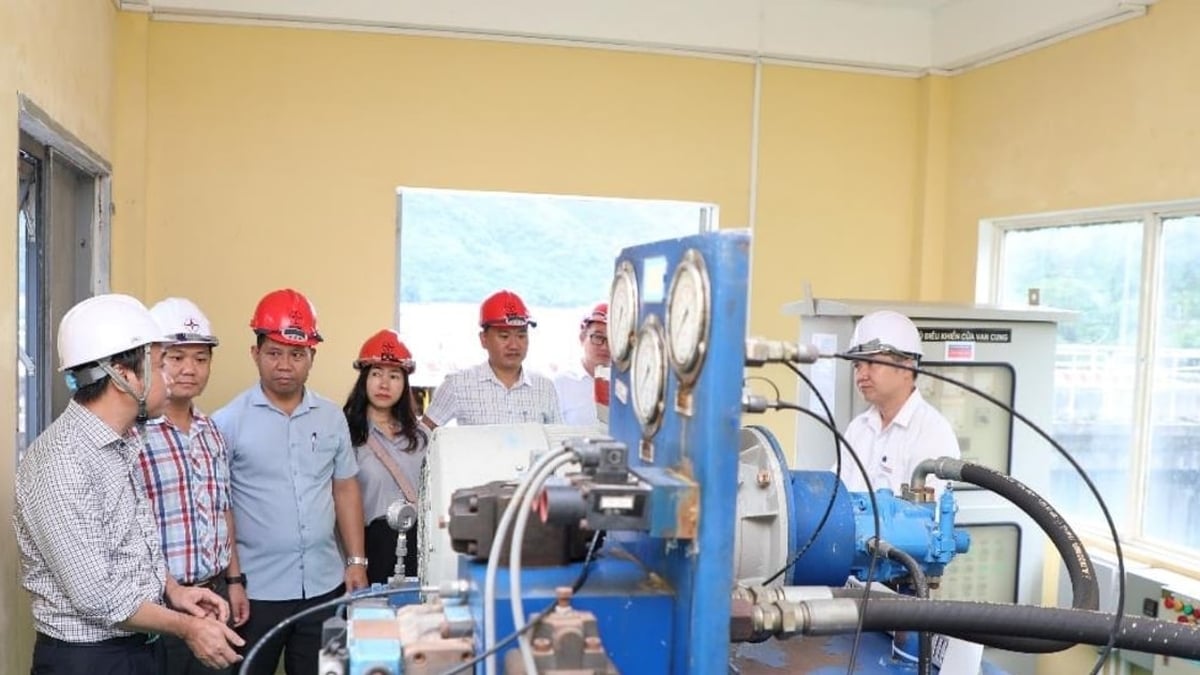





























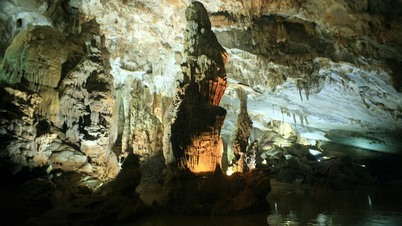

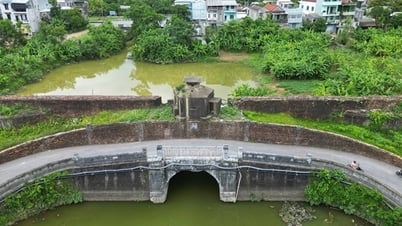











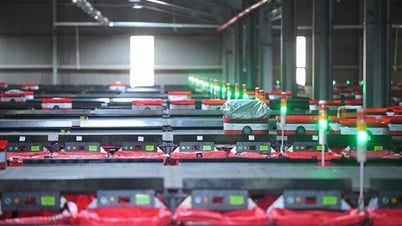

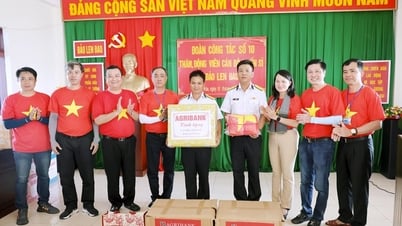

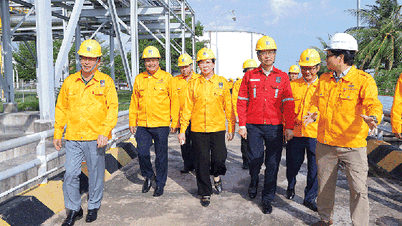

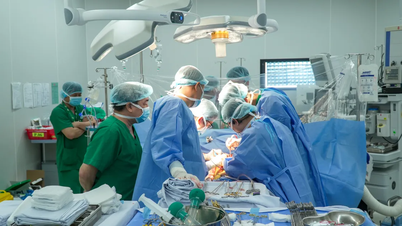



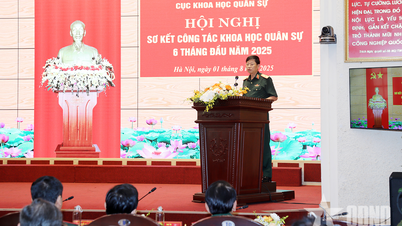
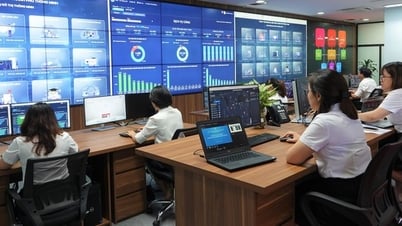
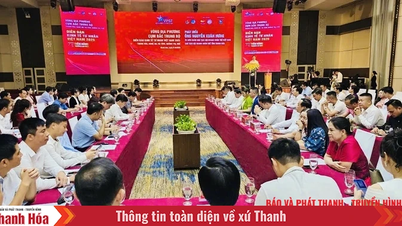

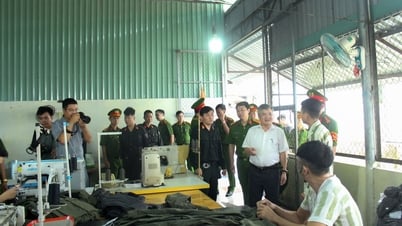

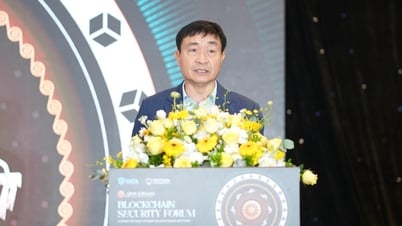
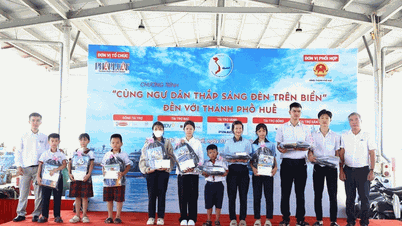






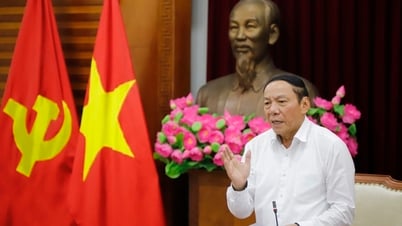
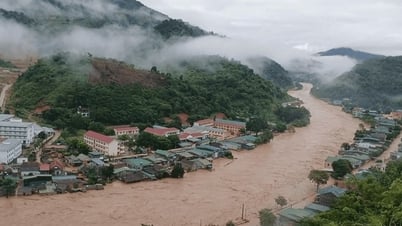























Comment (0)